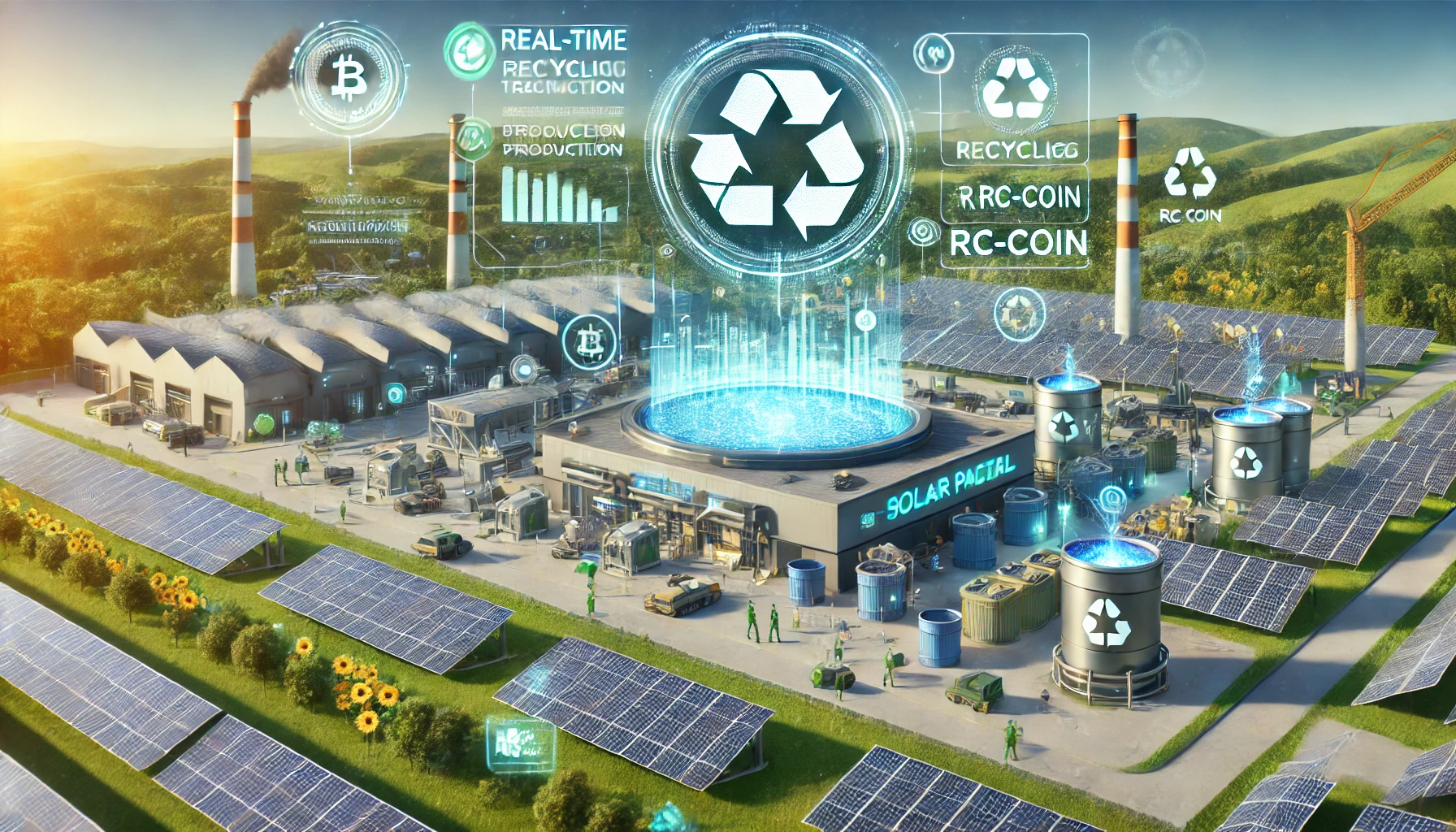Blockchain-Powered Recycling: A Sustainable Solution for Solar Panel Waste
Researchers from La Trobe, LUMS, UQ, NTU, and Princeton propose a blockchain-based circular economy to address solar panel recycling, distributing costs among stakeholders using a new cryptocurrency, RC-coin. This innovative approach aims to ensure sustainability and financial viability in managing renewable energy waste.

Researchers from La Trobe University, Lahore University of Management Sciences (LUMS), The University of Queensland (UQ), Nanyang Technological University (NTU), and Princeton University propose a blockchain-based circular economy to address the recycling of solar panels at their end-of-life (EOL), distributing the recycling costs among all stakeholders, including manufacturers, consumers, and recycling companies. The concept draws on the principles of the circular economy (CE), which aims to keep resources in use for as long as possible through recovery, reuse, and recycling. Blockchain technology is suggested as a tool to track the lifecycle of solar panels, ensuring transparency and accountability among stakeholders. The system would allow for the tracking of energy production and panel degradation, using this data to calculate the funds required for recycling. A new cryptocurrency, the Recycling Coin (RC-coin), would incentivize this process by monetizing energy-related activities and stabilizing coin supply and price through decentralized finance mechanisms.
A Sustainable Solution for Solar Panel Waste
The background of this initiative is rooted in the global push for sustainability, highlighted by commitments at the COP27 conference to phase out fossil fuels and enhance low-emission energy sources. The large-scale deployment of solar panels, while beneficial for reducing carbon emissions, poses significant environmental hazards if these panels end up in landfills. Toxic substances from the panels can damage the environment and human health, necessitating a robust recycling infrastructure. The paper highlights the challenges faced by recycling companies due to the high costs of recycling solar panels compared to cheaper landfill disposal. It advocates for a model where the responsibility and costs of recycling are shared among all beneficiaries of solar energy, facilitated by blockchain technology. This approach aims to create a sustainable and financially viable solution for managing solar panel waste.
Challenges in Current Recycling Practices
The current reality of solar panel recycling is limited, with most panels ending up in landfills due to the lack of effective tracking and financial incentives. The European Union and the UK have begun to implement regulatory frameworks to address this issue, but the recovery rates and profitability of recycling remain low. The proposed blockchain-based solution would provide a formal framework for tracking EOL panels and distributing recycling costs among stakeholders, ensuring a more sustainable approach. The implementation of blockchain in the CE involves several components, including smart contracts, full nodes, and digital wallet applications. These tools would enable the automatic execution of recycling agreements, track energy production and panel degradation, and manage financial transactions in a decentralized manner. The paper discusses three potential solutions of varying complexity, from simple data storage on the blockchain to more advanced systems incorporating smart contracts and digital currencies.
Innovative Blockchain Solutions
Solution 1 involves using blockchain for data storage and management, while financial transactions are handled in fiat currencies. Solution 2 integrates smart contracts and stablecoins to automate the recycling process, enhancing security and reducing reliance on traditional banks. Solution 3 proposes the creation of a new cryptocurrency, RC-coin, to incentivize recycling and manage the financial aspects of the circular economy through decentralized finance principles. The proposed model assumes a consortium blockchain, where solar panel manufacturers, recycling factories, utilities, and governments/regulators are full nodes that store the full blockchain and participate in the block creation. Due to capital investment constraints, energy producers and consumers are considered light nodes that can use the system and create transactions. Further, we assume that they are connected to the network via DApp wallet, which allows them to access their relevant information.
Shared Responsibilities Among Stakeholders
In the proposed model, the roles of different stakeholders within a solar system are outlined to ensure that the cost and responsibility of recycling are proportionately shared. For instance, regulators and green activists monitor compliance issues without contributing financially. Manufacturers are responsible for producing solar panels and handling warranty replacements. Utility companies track energy production and manage financial transactions. Recycling companies handle the recycling process, funded by contributions accumulated in escrow accounts. Consumers or prosumers generate and possibly sell green energy while gradually paying for recycling through energy production.
A Comprehensive Approach to Solar Waste
The complexity of these solutions varies, but they collectively aim to address the significant challenge of solar panel waste. Solution 1 is relatively easy to implement, focusing on data management without full automation. Solution 2 introduces stablecoins and smart contracts for a more seamless and secure system. Solution 3, the most complex, leverages decentralized finance and introduces a new cryptocurrency to incentivize and manage recycling efforts. Each solution has its advantages and challenges, but together they offer a comprehensive approach to mitigating the environmental impact of solar panel disposal. The introduction of a blockchain-based circular economy for solar panel recycling could revolutionize the management of renewable energy waste, ensuring sustainability and financial viability. This approach not only addresses the pressing issue of solar panel waste but also sets a precedent for the recycling of other renewable energy assets. Future research will focus on refining these models, engaging with stakeholders, and exploring regulatory and financial factors to ensure the successful implementation of these innovative solutions.
- FIRST PUBLISHED IN:
- Devdiscourse










